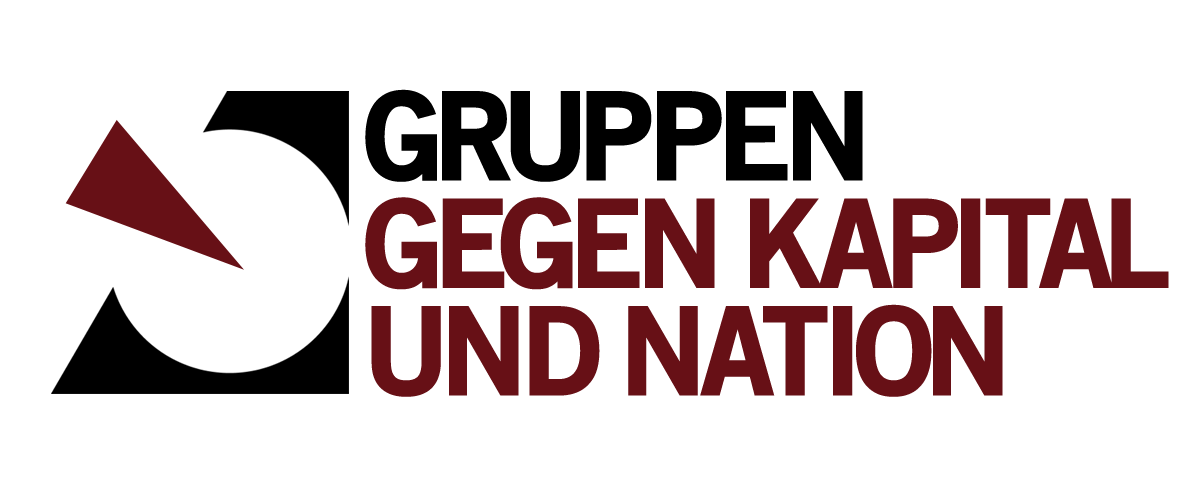This world has a lot of misery to offer: poverty, long work, stress, unemployment, war, hunger, racism, anti-semitism, sexism, homophobia — to name but a few. Pointing this out does not distinguish us from most people, many even resent these phenomena or at least some of them. However, they also quickly volunteer wrong explanations for why these exist.
We claim that modern misery ultimately is the result of the capitalist economy, the nation-state watching over it and the wrong ideas people have about them. This separates us from most other critics. The purpose of this journal is to prove this claim by explaining phenomena such as those listed above and by criticising the ideas and ideologies that misrepresent the prevailing conditions — whatever the well-meaning intentions behind them.
Since we refer to Marx’s Capital quite a bit, a few clarifications. We do not do this to prove our worth as Marxists but because a lot can be learned from studying that old book carefully. Besides explaining how the capitalist economy works, many ideas held dear also by people on the Left were already criticised in it. Capitalist crises are nothing but interruptions of the accumulation of capital. We do not criticise it for sometimes not accumulating all that well but because capitalism causes harm to people as an inevitable part of its package both in crises and in booms.
Modern democracy, where politicians strive to improve the well-being of the nation, is a fitting form of government for the capitalist mode of production. The separation of rule from individual capitalist enterprises is a necessary condition for the existence of general capitalist relations. Nation-states are not capitalist players on the market – they rather make markets possible. We do not criticise modern democracies for being undemocratic but explain what democracy, freedom and equality — as they exist — are.
We do not follow the wide-spread “realism” which consists of doing stuff we do not want and of not talking about the stuff we do want. The lesser of two evils is still an evil. We do not merely aim for success but rather want a particular critique to succeed. We do not oppose “revolution” to “reform” but criticise the mistakes that people make when they want this or that reform or revolution or neither.
Declarations of love towards the workers, “the people” and “the little man” are absent from our texts since this prevents the critique of their wrong consciousness. This critique is necessary because we need allies in order for anything to change. The kind of anti-capitalism which suspects evil parasites behind everything and conspiracies everywhere will not be found in our texts; however, arguments against these ideologies will be.
Insight does not follow from a social position in a positive (operaism) or negative (Marxism-Leninism) way. Arguments do not have a standpoint, they are either correct or else wrong, insufficient or incomplete. Speaking of which, we throw around terms like “truth”, “correct” and “wrong” like there is nothing to it; this is because there is not. Those who dispute the existence of a world which we can understand contradict themselves: they themselves claim to make a true statement. Also, we do not express our “opinions” but “judgements”, we do not “believe” but “know”. Please do not mistake this for dogmatism or arrogance. Let us explain: we know that everything anyone ever says is a result of their thinking. This means that we can — and frequently do — err. We do not have a monopoly on truth. Every sentence can always be prefixed with “as far as we know”. This is a tautology, which is why we save the ink. Instead, we give the reasons that lead us to a certain conclusion. When these reasons are wrong or we overlooked something, we appreciate critique. This journal and every piece in it is also an invitation to critique.
We lay no claim to being clever, innovative, original or sophisticated. Our project is to be correct and clear. Hence, writing in a way which is too difficult is an obstacle for our own project. Yet, we struggle with writing in a way that is sufficiently accessible and clear. If our pieces are difficult to understand, we would really like to know about it, so we can do something about it.
This journal is jointly produced by people from Critisticuffs (London) and from Gruppen gegen Kapital und Nation (groups against capital and nation, Germany and Austria). We are happy to do discussion meetings, reading groups or seminars around topics we write about, also outside of London. Get in touch at
